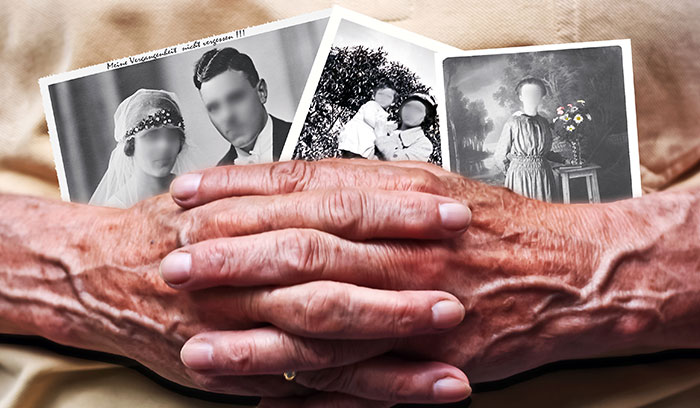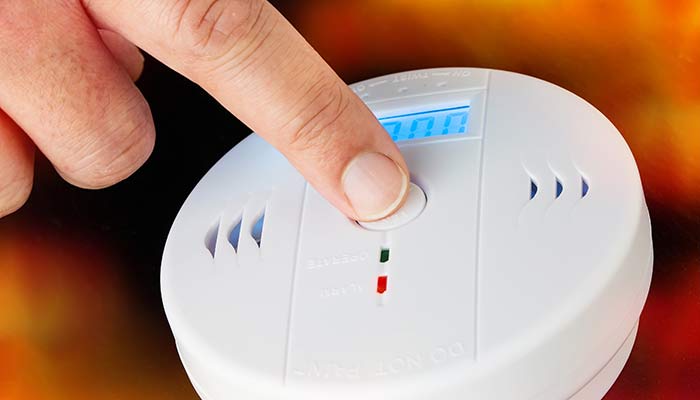Learn more at [YourNewsletter.com]
[Name of E-Newsletter]
Helpful tips for family caregivers
October/November 2017 Print
Make the most of visiting
 If the person you care for has advanced dementia, visiting him or her may feel very challenging. After all, how do you connect with a person who is unable to converse? You may wonder if it is even worthwhile to visit.
If the person you care for has advanced dementia, visiting him or her may feel very challenging. After all, how do you connect with a person who is unable to converse? You may wonder if it is even worthwhile to visit.
Research suggests that during late-stage dementia, a person’s core self remains. Much like in our earliest years of life, when we are preverbal, we perceive the world around us largely through touch, smell, sound, sight, and taste. At this stage we can still experience comforts and pleasures. These experiences contribute to our overall well-being.
In this light, visits are important! Bear in mind:
- Words may not be understood, but the expression on your face and your tone of voice may be.
- A quiet room away from noise and clutter is most reassuring. Make eye contact, but don’t force interaction.
- Visits are best one person at a time. Children should be accompanied by an adult.
- If your relative doesn’t want to interact, it’s about the disease, not you. Don’t take it personally. Thirty minutes later, tomorrow, or next week, things may be very different.
Try these options for happy connection:
- Brushing hair or rubbing lotion on hands or feet. These simple gestures are reassuring and communicate love and care.
- Playing music, especially from your relative’s youth, is an amazing way to connect. People who are unable to talk can still clap or tap along, and some can even remember lyrics enough to sing favorite songs or hymns.
- Looking at photo albums, you might retell a favorite family story. Or look at a simple, colorful book and read aloud.
- Sharing a favorite food. Easy-to-chew foods are best: a familiar pudding or a cookie?
- Cuddling a pet or stuffed animal. The touch of fur and the unconditional love of an animal—alive or stuffed—is often very comforting.
What is "A-Fib"?
 Atrial fibrillation (A-Fib) is when the rhythm-keeper of the heart goes a little haywire. Normally the heart has a steady beat, like a clock. All four chambers contract in sync and blood is efficiently pushed through. During A-Fib, the top two chambers hesitate. They quiver and get out of sync with the bottom two. It can feel like the heart races.
Atrial fibrillation (A-Fib) is when the rhythm-keeper of the heart goes a little haywire. Normally the heart has a steady beat, like a clock. All four chambers contract in sync and blood is efficiently pushed through. During A-Fib, the top two chambers hesitate. They quiver and get out of sync with the bottom two. It can feel like the heart races.
Complications. Some people with A-Fib develop congestive heart failure(CHF). Another risk is stroke. Because of the irregular beat, the top chambers (the atria) don’t fully empty. Blood can pool in the heart and form a clot, causing a stroke if it gets to the brain.
Symptoms. Signs of A-Fib vary widely, from none to
- a pounding heart that skips beats and feels like it flip flops in the chest. This is especially common during physical exertion, or
- nausea, dizziness, a fast heartbeat, and shortness of breath.
Many people with atrial fibrillation lead highly engaged lives. If your loved one gets a diagnosis of A-Fib, support him or her to
- take medications exactly as prescribed. Many of the drugs process through the body quickly. Taking a medication an hour or two late actually can cause problems.
- get lab tests as required. Monitor blood thinners regularly. You don’t want too much or too little.
- eat a heart-healthy diet. Focus on foods that are low in fat and have little or no salt. Pay attention to the dietary restrictions of any heart medications.
- get regular, monitored exercise. Talk to the doctor about the appropriate type and amount.
- keep the heart calm. Anger, anxiety, or stress raise the heart rate and can make the fibrillation worse. Try yoga, mindfulness, and other relaxation techniques.
- avoid stimulants. Coffee, caffeinated sodas, and alcohol all promote a faster heartbeat.
Fire prevention at home
In October, the National Fire Protection Association reminds us to think about fire prevention and check our smoke alarms. People over 65 are twice as likely as others to be killed or injured by fires. To protect your loved one:
Prevention. Check that your relative does not
- overload electrical outlets when space heaters or other appliances are plugged in;
- wear clothing with loose sleeves when cooking;
- store flammable items (paper towels, towels) near the stovetop;
- leave the room when something’s on the burner;
- leave grease on the stove after cooking;
- use the oven or an iron without setting a timer.
Alarm systems. Most of the fires that result in death occur at night. We don’t smell smoke in our sleep! In fact, smoke tends to make us sleep deeper. That’s why alarms are so important. Test batteries once a month. Replace them once a year. Also, check for an automatic sprinkler system if your relative moves into a new house or apartment.
Plan for an emergency.
- Identify two possible exits for each room (doors? windows?).
- Designate two people to look out for your relative, especially if he or she might need assistance with evacuating.
- Check with local emergency responders to see what information they keep on file about special needs: person sleeping on the second floor, oxygen in the home, need for mobility assistance, hard of hearing, dementia.
Practice the plan. Now and then, check to be sure your loved one can still do what’s needed. If not, alter the plan. Can he or she
- easily open windows and doors? Ensure they are not blocked, or painted or nailed shut;
- unlock security bars on doors or windows? Practice using the quick-release feature on the inside;
- call for help right away? Practice calling 911 and asking for help.
